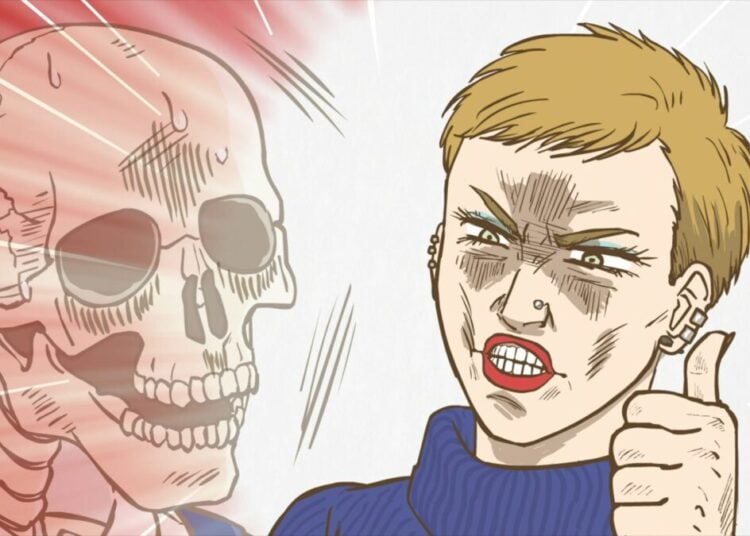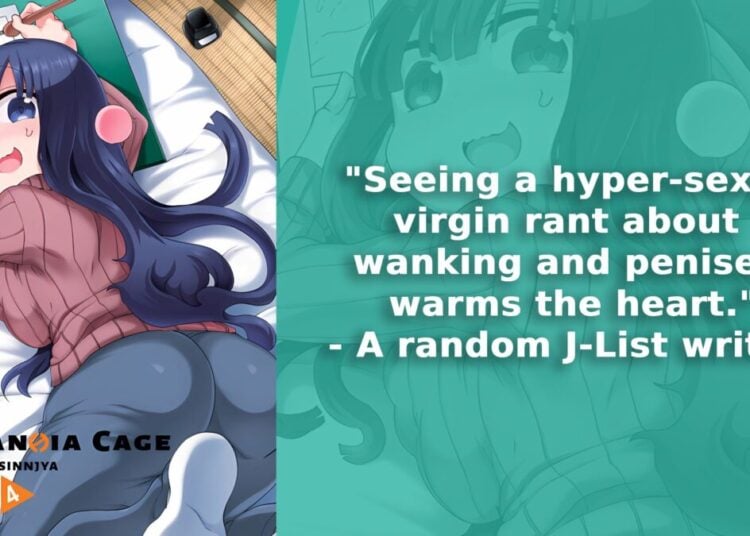Living in Japan has its perks when it comes to finding new manga. I can happily walk into any bookstore and find a wide variety of titles, new and old, in any genre, and that includes my specialty: BL (boy’s love). Something I love to do is what I was advised to never do, which is “judge a book by its cover,” and buy a random assortment of BL manga based on how stylish the cover art is. Sadly, four out of five times this results in a lot of disappointment, and sometimes gross incest-fetish plotlines I try to avoid. One Room Angel by Harada is the one out of five times where I could not have been happier I took a shot in the dark. It is a one-shot, consisting of only eight chapters, but in that time, Harada tells a heartfelt and beautiful story that left me in tears.
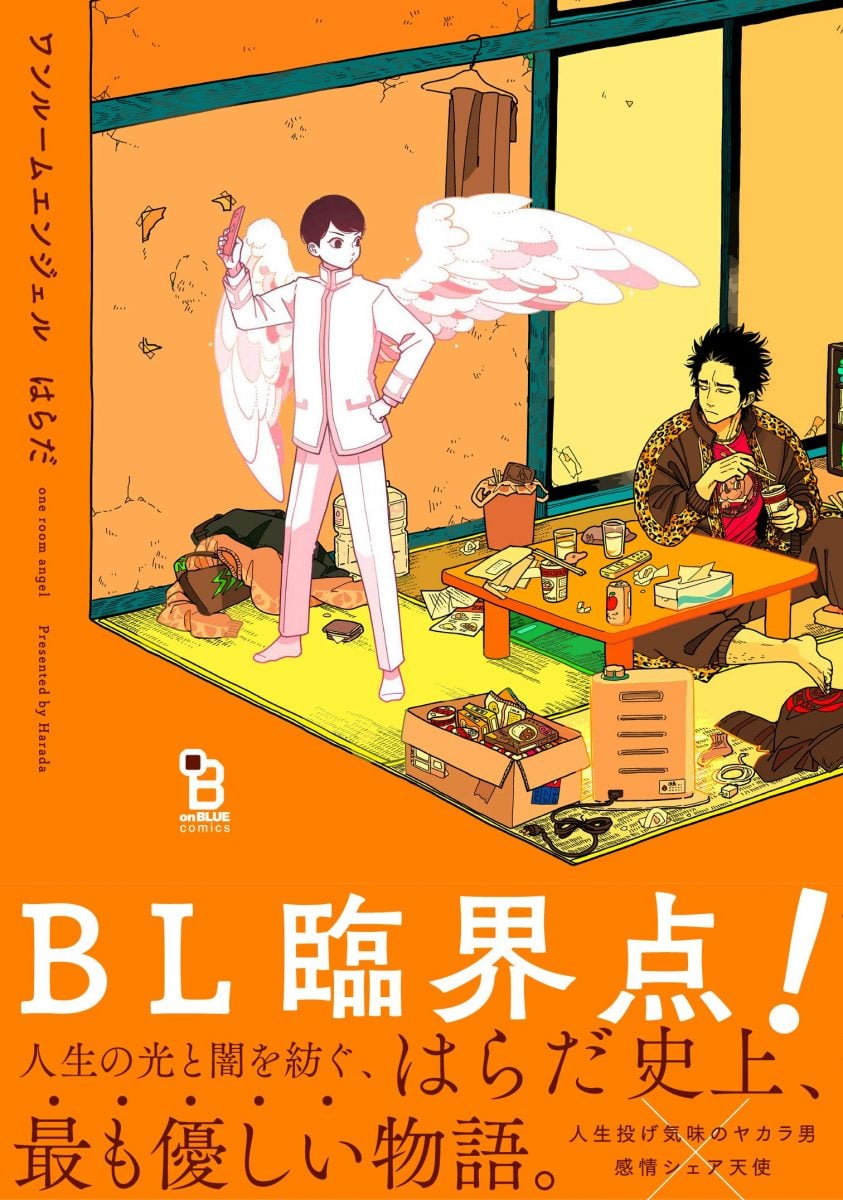
In the first two pages, One Room Angel introduces Kouki: a man in his mid-30s, working a deadbeat job at a convenience store, living in a one-room dump of an apartment, with no friends, and no aspirations to make anything out of himself. An absolute waste of skin. During an argument he has with two rude customers at work, Kouki is stabbed and left to die around the corner from the building. Just before he blacks out, Kouki rambles about how he doesn’t care about his life anymore, and maybe it’s better that he dies now before it gets any worse for him. To his surprise, an angel with the appearance of a middle-school student descends upon him.
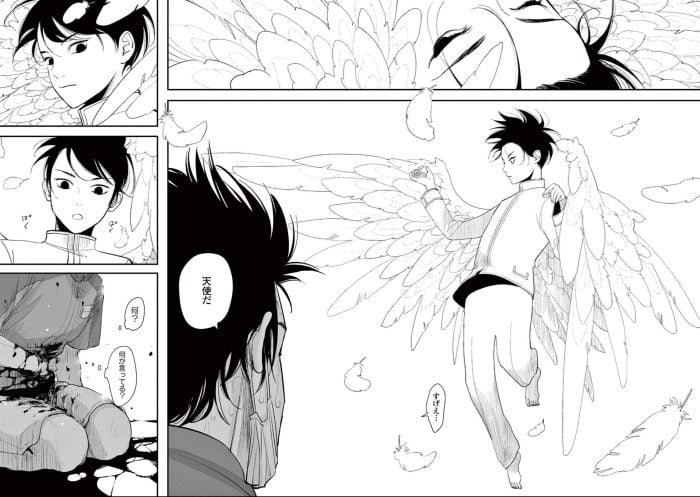
A week later, Kouki wakes up from a coma in the hospital and returns to his apartment to find the angel waiting patiently for him. The angel, who is left unnamed until much later in the story, has amnesia and doesn’t know his point for being on Earth. The only thing he had to go off of was that Kouki was the first person he encountered and that he can sense a deep connection to him. Whenever Kouki suffers despair, regret, or other negative emotions, the angel feels it too. In-tune with Kouki, the angel’s wings start to rot and lose feathers during these times of low emotion. On the flip side, when Kouki experiences hope, joy, or optimistic feels, the angel’s wings grow stronger.
Despite now being jobless, Kouki brushes his frustration aside and agrees to let the nameless angel live with him, taking pity on him for his situation, and having a soft spot due to the angel’s middle-school-age appearance.
At this point in the story, One Room Angel has every opportunity to take a perverted direction, but it never takes that route. Kouki and the angel’s relationship resembles tired roommates, older and younger siblings, or the dynamic between a father and son the entire time.
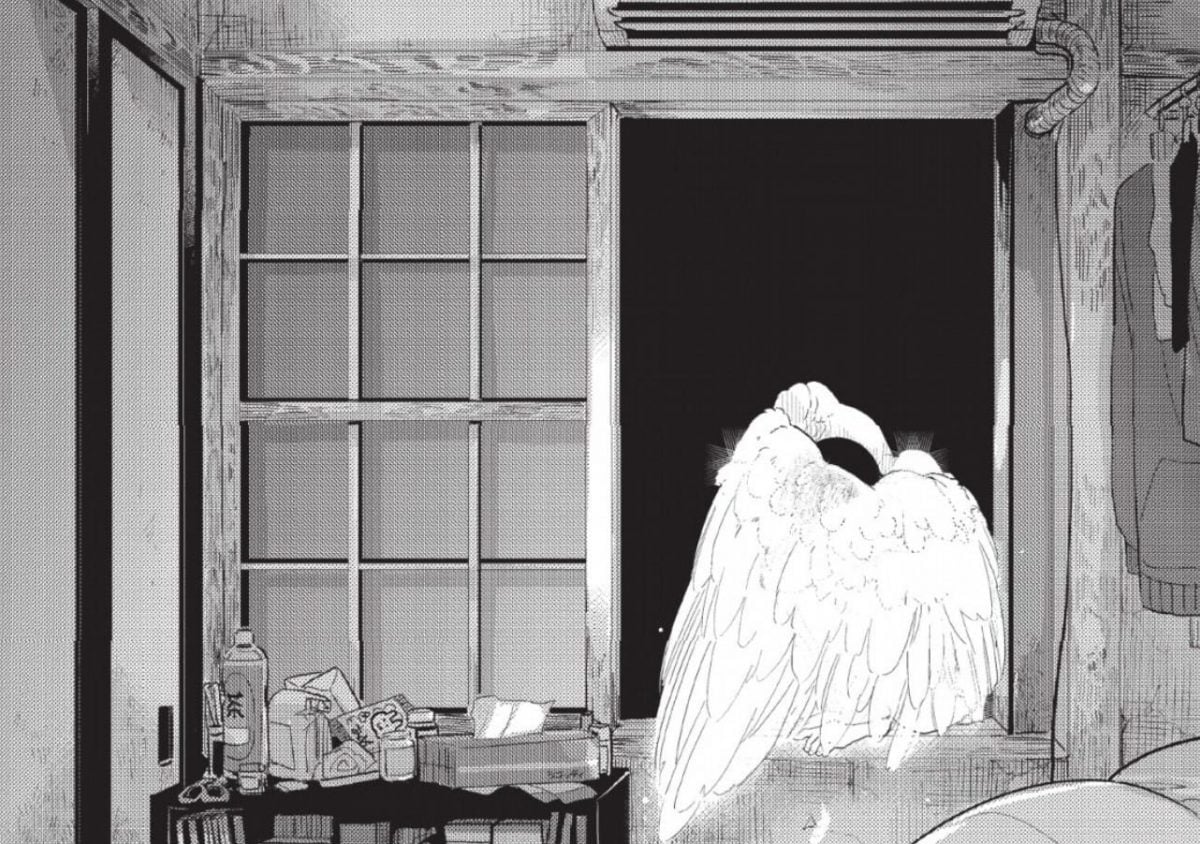
One Room Angel continues on, showcasing Kouki’s many attempts to get a new job all ending in miserable failure and the angel walking among the human world. To the angel’s detriment, while Kouki’s emotional state is the only one affecting his physical health, the angel can still detect and be in tune with the mental state of anyone around him, and he understands them in specific detail. The angel can detect the difference between feelings and desire, shifting through shame versus regret or suicidal thoughts versus longing. While the story is about Kouki, the pages told from the angel’s perspective reveal that Kouki isn’t alone in his rotting mental state, and serve as a small commentary on Japan’s harsh work culture.
The latter half of One Room Angel reveals more about Kouki’s past and how that led him to become such a worthless, self-loathing deadbeat. It also finally explains exactly who the angel really is, and how the two characters are linked together. Both are big spoilers, which we’ll avoid giving away in detail. However, both their stories are believable, each depicting two different kinds of regret over the choices they made prior to meeting one another. Because of their meeting, they find someone who offers what each of them seemingly needed from the start: forgiveness.
Kouki and the angel offer it to each other and, in turn, learn to forgive themselves for their pasts, resulting in a very tender moment. Even when the angel is strong enough to fly back to heaven they continue to spend time together. Kouki blows the rest of his life savings on the angel, and in a roundabout way, it changes his entire perspective of himself, and they both are finally able to give themselves the self-respect they needed. The end result? Kouki makes a comeback in a humble and realistic fashion.
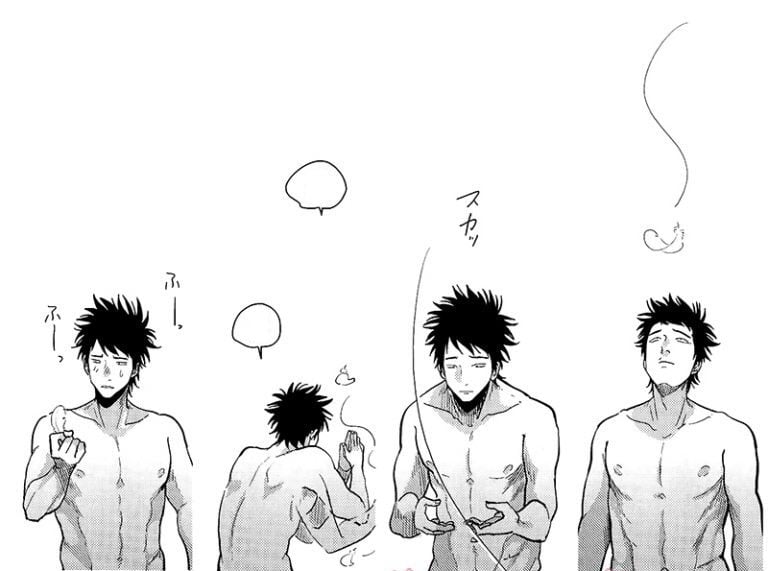
One Room Angel could have told a story of Kouki accomplishing some unfulfilled childhood dream of being a rockstar or taken the route of revenge against the people who stabbed him at the start, but it’s the fact that his new job and new life is “nothing special” in the end which, ironically, makes it so special. While the final chapter still leaves many unanswered questions about Kouki’s life and unsolved issues from his past, the story still feels complete because One Room Angel established at the very beginning that it isn’t a story about sex, romance, or revenge. It’s a story about a deadbeat, broken man with no self-respect, no future, and no reason to live.
The dynamic Kouki has with his unofficial adopted angel-son is endearing and genuine. One Room Angel, at its core, is a BL title by courtesy of Harada-sensei’s reputation and the onBLUE brand alone. There is no romance, no sexual content, not even hints of it. It’s a bit of a surprise to look up Harada-sensei’s track record to see that One Room Angel is pretty much the only exception. All their other work is riddled with smut and dark perverted fantasies.
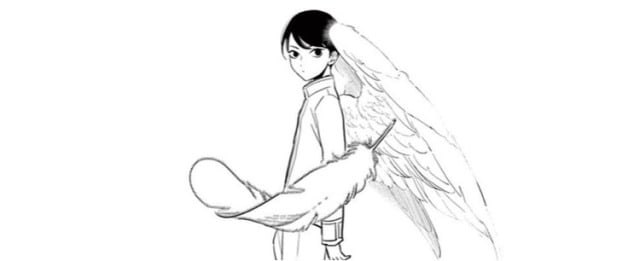
Nevertheless, One Room Angel has become (arguably) their most successful book, having won Best Comic in the 2020 Boy’s Love Awards, and rightfully so. This is one manga that you won’t want to pass on. It may be a one-volume story, but it is one we won’t soon forget.
The manga is licensed and available in English via futekiya.


